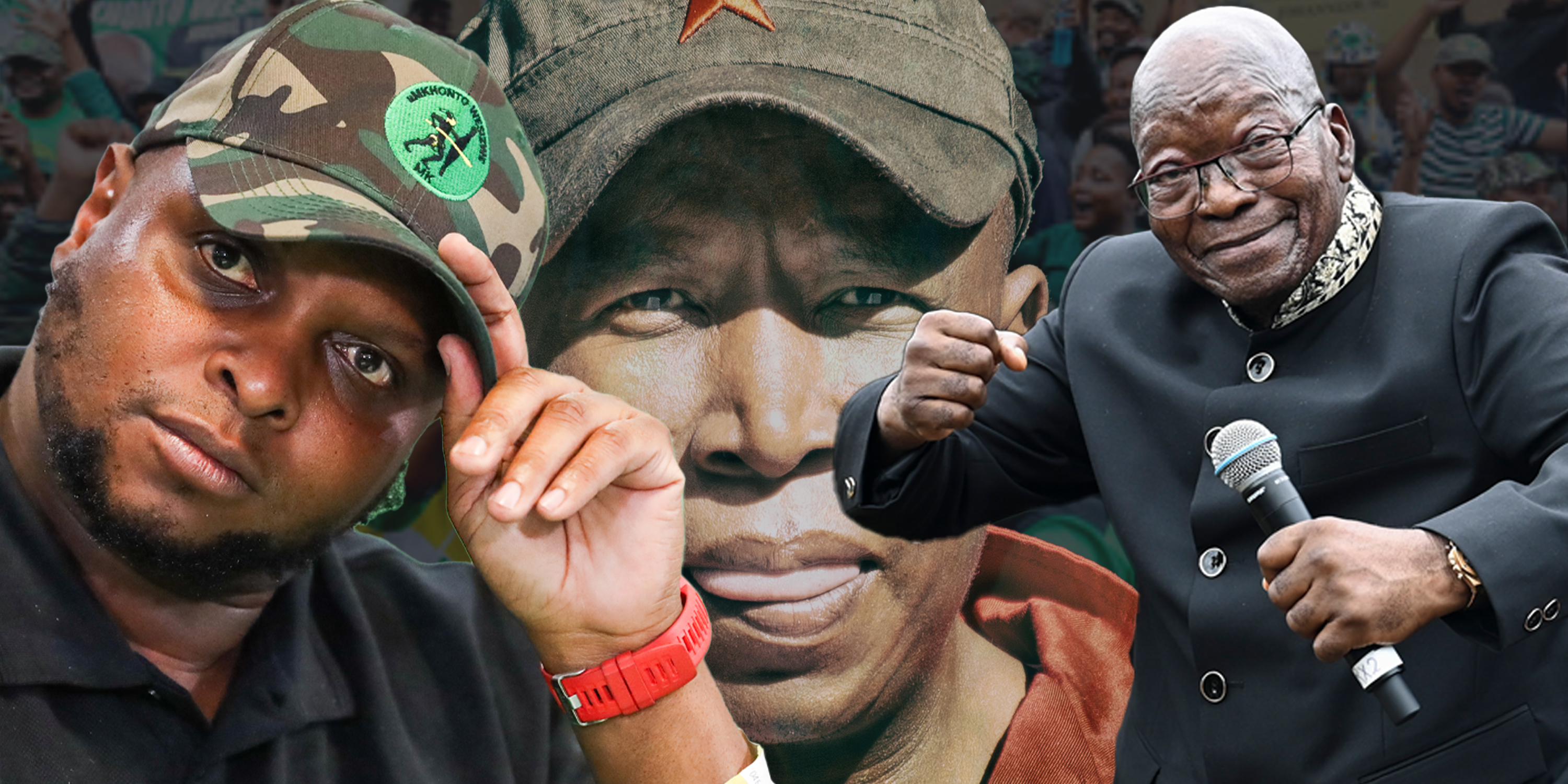Floyd Shivambu’s recent trajectory, from his position as deputy leader of the Economic Freedom Fighters (EFF), to joining the uMkhonto Wesizwe (MK) party, becoming its secretary-general, being fired and now working on a new party is all about position and palace politics.
While he and his supporters might argue that it is about ideology, this is hard to square with reality. The EFF describes itself as a progressive pan-African force; the MK party wants traditional leaders to govern (under Jacob Zuma).
Clearly Shivambu’s claim that joining the MK party was “the best decision” he’s ever made was not true. It now appears likely that he will be expelled from the party and will start a new party.
In historical terms this is part of a much longer process. As the African National Congress (ANC) continues to fracture, so more parties are flowing from its former members.
It should not be forgotten that this process started with the expulsion of Bantu Holomisa from the ANC. He formed the United Democratic Movement. Since then, there have been many parties that have fought one or two elections and then fallen from view.
The Independent Democrats, Congress of the People (Cope) and Agang are good examples of this. But now it appears that the process has sped up, and we can expect many more such parties.
While some were clearly non-starters, others fell victim to the kind of palace politics that Shivambu has clearly been involved in.
Parties such as Cope and Agang disappeared mainly because of disputes among their leaders.
The Independent Democrats disappeared when Patricia de Lille decided to join the Democratic Alliance (DA). When that marriage fell apart she formed another party in Good.
Read more: Floyd Shivambu to step out of the shadow of Malema and Zuma, but his future is uncertain
Importantly many of these parties do have their roots in the ANC in some way shape or form.
This is why Dali Mpofu was not wrong to say that he felt he deserved to belong to the ANC, the EFF and the MK party all at the same time. He was merely speaking about the fact that many of our newer parties have their roots in the ANC.
The ANC was easily the most prominent movement in the fight against apartheid, and the way our society was structured at the time meant that most people who wanted to be politically active joined it. Or something that was affiliated with it in some way.
Personality politics
One of the key features of these newer parties has been that they are so often about personality politics. Many parties are unable to move on past their first leader, because so often, the party is the leader.
This then leads to a large percentage of churn — parties that come and go based on the whims of their leaders. This has a huge impact on our politics. And it can lead to absurd consequences
In Joburg, Colleen Makhubela became the Speaker after representing Cope as a proportional representation councillor.
The party had won just 0.22% of the vote. She used this position to bargain, as she appeared to hold the balance of power between coalitions led by the ANC and the DA.
Then she left Cope (or was expelled, depending on whom you care to listen to) and formed the SA Rainbow Alliance. That received 12,450 votes in last year’s elections.
Following all of that she joined… you guessed it… the MK party. Someone who is able to do that can have no ideology.
But apart from the absurdity there are more important consequences.
Declining trust
The first is that these smaller outfits make forming and maintaining coalitions almost impossible. The fact that it is about individual personalities, and that the leadership of these parties changes so often, means that their behaviour is impossible to predict.
This leads to short-lived coalitions in councils and, soon perhaps, the National Assembly.
The second is that all of this palace politics of personality will lead many people to conclude, correctly, that none of this is about helping people. While our politics has been through phases of protecting party leaders, or certain classes, now it is becoming more about just individual personalities.
But it is all happening in plain sight. Everyone can see it.
Which means that voters are likely to simply turn away from our politics. It will lead to greater levels of people simply refusing to vote.
Read more: Moderates vs far left and far right — the future dynamics of SA politics
All of this could spiral downwards. As more parties are formed and as their leaders use them simply for bargaining in coalitions, so governance will get worse. More and more decisions will be made simply for the purposes of patronage.
In turn people will be less inclined to stay involved in our politics. Why vote if you know a party is just a personal vehicle for someone who is not interested in improving your life?
This is a difficult dynamic to stop; individuals and groups must be allowed to move from party to party and to form parties when they wish. Some measures, such as those that would limit representation in legislatures to parties that get over a certain percentage of support, might help.
But in the end, it appears as if we are destined to have a lot more churn in our politics, with serious consequences as a result. DM




 Illustrative image: (From left) Former secretary-general of the MK party Floyd Shivambu. (Photo: Luba Lesolle / Gallo Images) | EFF leader Julius Malema. (Photo: Leila Dougan / Daily Maverick) | Former president Jacob Zuma. (Photo: Darren Stewart / Gallo Images)
Illustrative image: (From left) Former secretary-general of the MK party Floyd Shivambu. (Photo: Luba Lesolle / Gallo Images) | EFF leader Julius Malema. (Photo: Leila Dougan / Daily Maverick) | Former president Jacob Zuma. (Photo: Darren Stewart / Gallo Images)